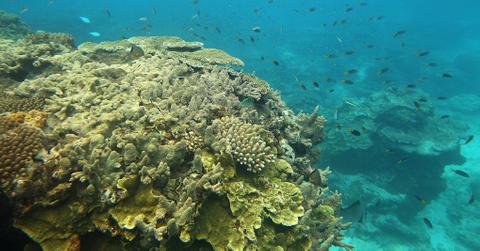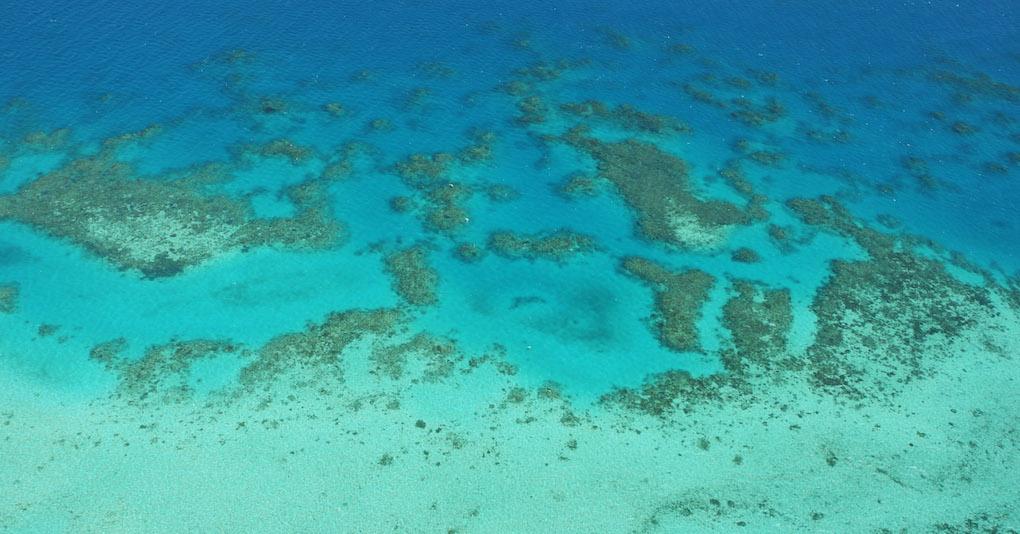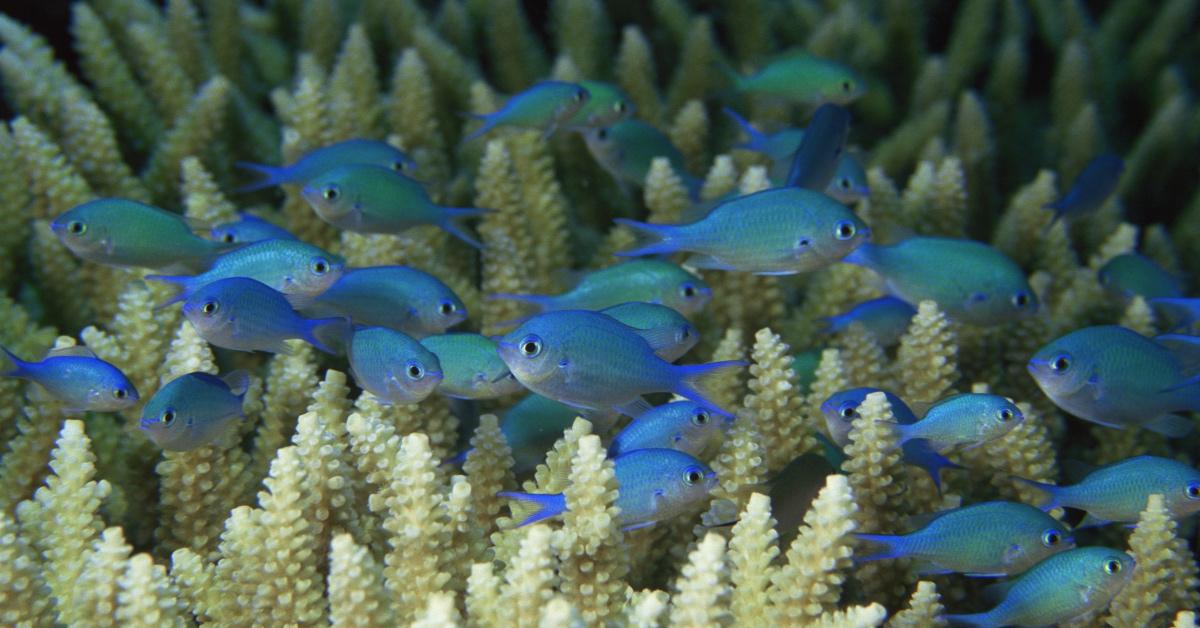A Portion of the Great Barrier Reef Has Lost Over One Third of Its Coral — Details
Without cutting back on greenhouse gases, "we will likely be witness to the demise of one of the Earth’s natural wonders."
Updated Nov. 21 2024, 10:42 a.m. ET

The Great Barrier Reef is one of the most beautiful natural wonders on our planet — but we are certainly not treating it that way. As the globe continues to increase in temperature thanks to human-caused greenhouse gas emissions and fossil fuels, many coral reefs are experiencing mass coral bleaching events that put biodiversity in danger.
So, what is happening to the Great Barrier Reef, exactly? Keep reading for the details on data regarding mass coral bleaching of the Great Barrier Reef, which is the world’s longest coral system. It spans a length of 1,429 miles in the Coral Sea, off of Queensland, Australia’s coast.
What is happening to the Great Barrier Reef?

The Australian Institute of Marine Science (Aims) revealed on Nov. 18, 2024, that a portion of the Great Barrier Reef around Cooktown and Lizard Island has lost over one-third of its live hard coral, per the Guardian.
This data came from in-water surveys of 19 reefs between Cairns and Cooktown and is the first result of the impact of Summer 2024's massive heat waves. However, there are still 80 to 100 more coral reefs that need to be surveyed between November 2024 and July 2025.
Previously, on Aug. 7, 2024, researchers published a report in the journal Nature revealing that mass coral bleaching on the Great Barrier Reef between 2016 and 2024 was driven by record-high sea surface temperatures (SST). Temperatures specifically between January to March in 2024, 2020, and 2017 were the warmest in 400 years.
In their report, climate scientists wrote that without swift and ambitious cuts to greenhouse gas emissions, "we will likely be witness to the demise of one of the Earth’s natural wonders."
According to Aims and the Great Barrier Reef Marine Park Authority (GBRMPA), tragically, a fifth mass coral bleaching event took place during July 2024, when global temperatures reached the hottest on record, per the Guardian Australia. This marked the fifth mass coral bleaching event in an eight year timespan.
On May 10, 2022, the GBRMPA published a report titled “Reef Snapshot: Summer 2021-22."
The report found that “Above average water temperatures led to a mass coral bleaching event late in the summer.” Experts observed coral bleaching along the Reef across all three regions of the Reef, in varying degrees of severity. According to CNN, anthropogenic climate change has contributed to coral bleaching in 91 percent of surveyed reefs that make up the Great Barrier Reef.
What causes coral bleaching?

The GBRMPA noted that there are four central factors that cause coral bleaching. The most notable is above average sea temperatures — and as long as humans keep emitting greenhouse gases, ocean temperatures will only continue to rise, and coral bleaching will keep happening.
According to the GBRMPA, the average maximum water temperature increasing by just 1 degree Celsius for about a month can cause severe bleaching.
The second factor is cyclones and storms, which cause powerful waves that can damage coral reefs.
Third is flood plumes, which happen when rainfall causes muddy water to flow into the ocean, which can reduce water quality and therefore affect coral health.
And fourth is the coral predator crown-of-thorns starfish; when the starfish’s population grows beyond normal levels, they eat coral tissue at unsustainable rates.
There are a number of programs working on monitoring and protecting the Great Barrier Reef, including one run by the Australian Institute of Marine Science, as well as the Long-term Monitoring Program, the Marine Monitoring Program, the Eye on the Reef Program, and the Reef Joint Field Management Program, as noted in the GBRMPA's 2022 report.
These programs and organizations can only do so much to prevent coral bleaching — a far more effective approach would be to shut down the main source of this disaster: mass anthropogenic greenhouse gas emissions. If we do not take comprehensive climate action soon, the Great Barrier Reef is just one of many areas of planet Earth that will suffer.
This article, originally published on May 11, 2022, has been updated to reflect new information about the Great Barrier Reef.